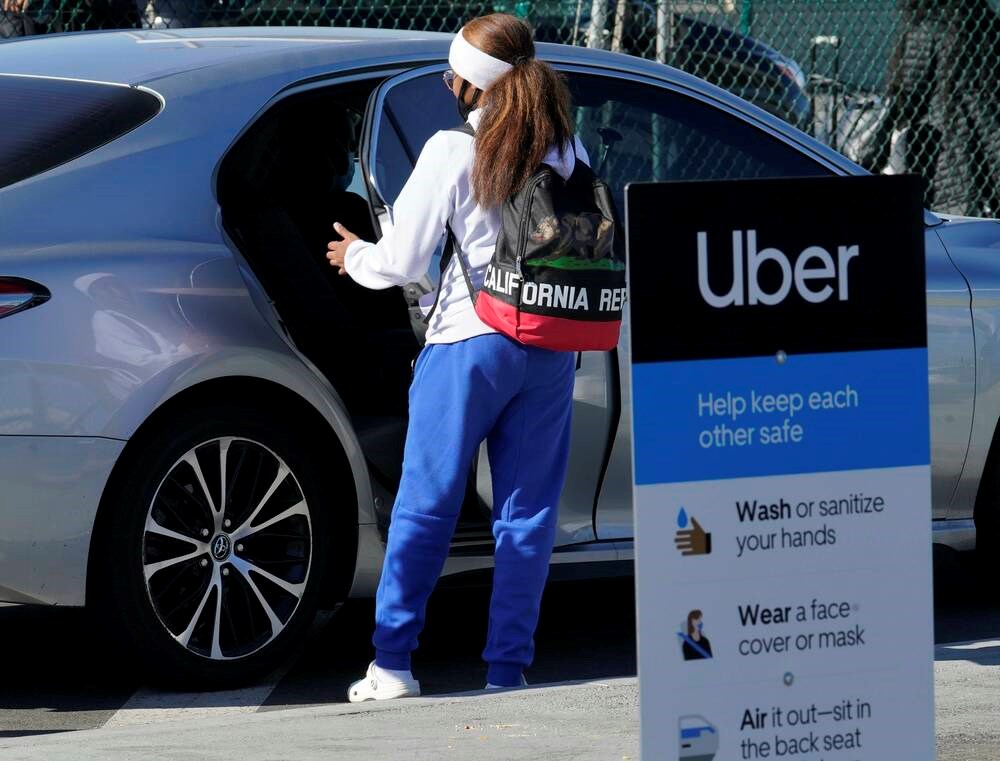Ride-hailing giant Uber said it was surprised by the Passenger Transportation Board’s decision this week to deny its application to operate in Victoria and Kelowna.
Operating in the Lower Mainland and Whistler since January 2020, Uber was hoping to expand its service area to all of Vancouver Island and the rest of the province.
“The Passenger Transportation Board’s decision is surprising, disappointing and inconsistent with what we hear from communities like Victoria and Kelowna,” Uber said in a statement to the Times Colonist. “There has been significant public demand for ridesharing … and the strong adoption of ridesharing in Metro Vancouver since our inception.”
In its ruling, the board of directors, an independent court examining applications for taxi, bus and limo licenses and so-called “transportation network services” – also known as ride-hailing – said there was a lack of public need and Uber’s presence in the country Market could hurt smaller operators and taxis.
“The board is not convinced that there is a public need for the requested service,” it says in its decision. “In addition, the Board of Directors believes that if the application were approved at this point, it would not promote solid economic conditions in the BC passenger transportation business.”
However, according to Uber, tens of thousands of users in Victoria and Kelowna downloaded and opened the company’s software application on smartphones over the past year, which the company says shows demand for the service. It also noted that it has the backing of Victoria and Langford councilors, who both wrote letters of support to the board that were included in Uber’s motion.
“British Columbians have made it clear that they want access to the same safe and reliable driving services that are available in communities around the world,” the company said.
Victoria Mayor Lisa Helps said she was disappointed with the decision. “Victoria’s # 1 private sector is technology, and tech companies have been championing Uber for at least 2017 or sooner,” she said.
Helps said it shouldn’t be a taxi versus Uber issue as there’s room for both. “If the aim is to offer people as many alternatives as possible to the single-person vehicle, as provided for in the city’s climate leadership plan, then we have to create as many options as possible as quickly as possible.”
In its decision, the board referred to a report commissioned by it, which shows that the number of passengers has decreased significantly as a result of the pandemic.
However, an Uber spokesperson noted that the pandemic hasn’t hampered expansion elsewhere. It added services in Winnipeg and Halifax, and last year saw increased interest from would-be drivers looking to boost their incomes.
According to Uber, consumers in cities like Victoria and Kelowna expect the same services to be available around the world.
But a local company that has operated a driver service in Victoria and Kelowna since April 2020 said the board’s decision was correct for now.
Mandeep Rana, CEO of Lucky to Go from Victoria, said there was no demand for another player in the market.
“We didn’t need another company for this type of service right now. Even we as a ride hailing company weren’t even able to take full advantage of the opportunity due to COVID, ”said Rana.
Lucky to Go is one of six companies that have licensed ridesharing in Victoria. But it’s the only one that does this. Rana said the reason for this is money – a store is expensive to set up when very little money comes in.
Rana said Lucky to Go is only now preparing to offer airport services and turning to the Greater Victoria Harbor Authority to serve cruise passenger demand.
“There are no passengers at the moment, just not enough,” he said.
Uber said it will review the board’s decision before deciding what to do next, be it an appeal or some other motion.
aduffy@timescolonist.com

